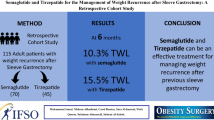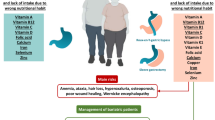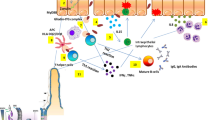Abstract
Vitamin A is a fat-soluble vitamin that plays an important role in immune function, vision, and growth. We analyzed serum-free retinol deficiency in pediatric patients with intestinal failure (IF) or short bowel syndrome (SBS) to determine which clinical factors contribute to vitamin A deficiency in this population. A single-center, retrospective review of 32 children with IF or SBS was conducted examining 6 categorical classifications of patients to test for increased risk of vitamin A deficiency, building a univariate logistic regression model for each category. Few serum assessments were consistent with deficiency (11 out of 347 tests obtained over 153 patient-years). Among these 11 low levels occurring in three patients, 6 were borderline or nearly normal for age and without associated symptoms, and 4 were obtained from one patient with significant ileal inflammation in the context of a STAT1 mutation. One level was obtained in one patient without a corresponding C-reactive protein level, and this patient had 23 subsequently normal serum-free retinol levels. In this small sample size, no patients were symptomatic. In patients who had at least 1 vitamin A test during the prior year without any deficient measurements, there was a 1.3% chance of obtaining a deficient vitamin A level upon subsequent measurement. A low risk of vitamin A deficiency was seen over the course of 153 patient-years, suggesting that frequent, repeated vitamin A assessment may not be needed in patients with normal vitamin A status early in their post-operative IF course.
Similar content being viewed by others
Data Availability
Available upon reasonable request.
Code Availability
N/A.
Abbreviations
- BMI :
-
Body mass index
- cm :
-
Centimeters
- CRP :
-
C-reactive protein
- dL :
-
Deciliter
- HPN :
-
Home parenteral nutrition
- IF :
-
Intestinal failure
- IQR :
-
Interquartile range
- kg :
-
Kilograms
- GGT :
-
Gamma-glutamyl transferase
- mcg :
-
Micrograms
- mL :
-
Milliliter
- OR :
-
Odds ratio
- PN :
-
Parenteral nutrition
- RBP :
-
Retinol-binding protein
- SBS :
-
Short bowel syndrome
- SWANA :
-
Southwest Asian and North African
- STAT1 :
-
Signal transducer and activator of transcription 1
- USD :
-
United States Dollars
References
Swartz-Basile DA, Wang L, Tang Y, Pitt HA, Rubin DC, Levin MS. Vitamin A deficiency inhibits intestinal adaptation by modulating apoptosis, proliferation, and enterocyte migration. Am J Physiol Gastrointest Liver Physiol. 2003;285(2):G424–32. https://doi.org/10.1152/ajpgi.00524.2002.
MacDonald PN, Ong DE. Evidence for a lecithin-retinol acyltransferase activity in the rat small intestine. J Biol Chem. 1988;263(25):12478–82.
Said HM, editor. Physiology of the gastrointestinal tract. 6th ed. Academic Press; 2018.
Reboul E. Absorption of vitamin A and carotenoids by the enterocyte: focus on transport proteins. Nutrients. 2013;5(9):3563–81. https://doi.org/10.3390/nu5093563.
O’Neill ME, Thurnham DI. Intestinal absorption of beta-carotene, lycopene and lutein in men and women following a standard meal: response curves in the triacylglycerol-rich lipoprotein fraction. Br J Nutr. 1998;79(2):149–59. https://doi.org/10.1079/bjn19980026.
van Lieshout M, West CE, van Breemen RB. Isotopic tracer techniques for studying the bioavailability and bioefficacy of dietary carotenoids, particularly β-carotene, in humans: a review. Am J Clin Nutr. 2003;77(1):12–28. https://doi.org/10.1093/ajcn/77.1.12.
Borel P, Tyssandier V, Mekki N, et al. Chylomicron beta-carotene and retinyl palmitate responses are dramatically diminished when men ingest beta-carotene with medium-chain rather than long-chain triglycerides. J Nutr. 1998;128(8):1361–7. https://doi.org/10.1093/jn/128.8.1361.
Tanumihardjo SA. Assessing vitamin A status: past, present and future. J Nutr. 2004;134(1):290S–3S. https://doi.org/10.1093/jn/134.1.290S.
Borel P, Lietz G, Goncalves A, et al. CD36 and SR-BI are involved in cellular uptake of provitamin A carotenoids by Caco-2 and HEK cells, and some of their genetic variants are associated with plasma concentrations of these micronutrients in humans. J Nutr. 2013;143(4):448–56. https://doi.org/10.3945/jn.112.172734.
Merritt RJ, Cohran V, Raphael BP, Sentongo T, Volpert D, Warner BW, Goday PS. Intestinal rehabilitation programs in the management of pediatric intestinal failure and short bowel syndrome. J Pediatr Gastroenterol Nutr. 2017;65(5):588–96.
VITAE - Overview: vitamin A and vitamin E, Serum. Accessed August 6, 2022. https://www.mayocliniclabs.com/test-catalog/Overview/605267#Clinical-and-Interpretive
Thavendiranathan P, Bagai A, Ebidia A, Detsky AS, Choudhry NK. Do blood tests cause anemia in hospitalized patients? The effect of diagnostic phlebotomy on hemoglobin and hematocrit levels. J Gen Intern Med. 2005;20:520–4. https://doi.org/10.1111/j.1525-1497.2005.0094.x.
Gans M, Taylor C. Reversal of progressive nyctalopia in a patient with Crohn’s disease. Can J Ophthalmol. 1990;25(3):156–8.
Howard L, Chu R, Feman S, Mintz H, Ovesen L, Wolf B. Vitamin A deficiency from long-term parenteral nutrition. Ann Intern Med. 1980;93(4):576–7. https://doi.org/10.7326/0003-4819-93-4-576.
Smith FR, Lindenbaum J. Human serum retinol transport in malabsorption. Am J Clin Nutr. 1974;27(7):700–5. https://doi.org/10.1093/ajcn/27.7.700.
Jeppesen PB, Høy CE, Mortensen PB. Deficiencies of essential fatty acids, vitamin A and E and changes in plasma lipoproteins in patients with reduced fat absorption or intestinal failure. Eur J Clin Nutr. 2000;54(8):632–42. https://doi.org/10.1038/sj.ejcn.1601067.
Acknowledgements
Jorge Vargas (Pediatric Gastroenterology, Hepatology & Nutrition, David Gefen School of Medicine, University of California Los Angeles, Los Angeles, CA 90095, USA) and Michelle Gibson (Division of Pediatric Surgery, Stanford University School of Medicine, Stanford, CA 94305, USA).
Funding
None.
Author information
Authors and Affiliations
Corresponding author
Ethics declarations
Ethics Approval
IRB approval obtained through Stanford University School of Medicine
Consent to Participate
All participants consented to the IRB approve database/registry.
Consent for Publication
All authors consented to publication.
Conflict of Interest
The authors declare no competing interests.
Additional information
Publisher’s Note
Springer Nature remains neutral with regard to jurisdictional claims in published maps and institutional affiliations.
Rights and permissions
Springer Nature or its licensor (e.g. a society or other partner) holds exclusive rights to this article under a publishing agreement with the author(s) or other rightsholder(s); author self-archiving of the accepted manuscript version of this article is solely governed by the terms of such publishing agreement and applicable law.
About this article
Cite this article
Smith, A., Dahlen, A., Diyaolu, M. et al. Retrospective Observational Analysis of Free Serum Retinol in a Cohort of Pediatric Patients with Short Bowel Syndrome and Intestinal Failure. SN Compr. Clin. Med. 5, 287 (2023). https://doi.org/10.1007/s42399-023-01626-6
Accepted:
Published:
DOI: https://doi.org/10.1007/s42399-023-01626-6




